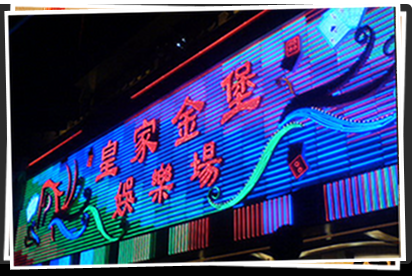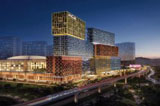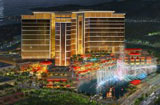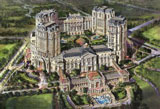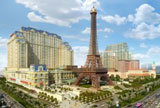We’re not going to start bashing our esteemed compatriots in the gaming world who make a living from providing informed opinions. Glass houses and all that, you see. But we cannot let the article in Macau Daily Times today, “Gaming cap to boost electronic tables” go by without comment.
We think Union Gaming’s Macau researcher, Grant Govertsen, and Vegas-based Jonathan Galaviz are people who have put out much valuable insight on Macau in the past. What they told MDT in today’s paper, however, was completely off the mark, in our humble opinion.
First, we do not believe for one moment that Chinese gamblers are going to start sitting down at electronic tables more often, and gamble bigger amounts, just because the government has put in place a cap on the number of live tables. It is going to take the market a long time to get back to the crowded conditions of pre-Sands, circa 2004, before Chinese gamblers struggle to find a seat at a traditional baccarat table.
Second, we don’t think for one moment that the government is likely to be comfortable with an explosion of electronic table games, in any case. The article may have quoted DICJ chief Manuel das Neves as saying there are no plans to cap electronic games, but this is the same man who thinks the market is only going to grow by 30% YoY this year. In other words, he’s missing the bigger picture: the point of the table cap is to refocus the concessionaire’s energy and attention on the non-gaming facilities of their projects, not to get them investing in more gaming hardware that doesn’t require local labor.
Third, we really don’t think it is our place, or anyone else’s, for that matter, to tell the government it should stay out of the way of market forces. As we see it, from the government’s point of view, the first 10 years of reform and liberalization have not exactly gone according to plan. Macau is far from realizing its ambition of becoming a world-class entertainment and leisure destination. Wynn, a name synonymous with luxury and Cirque du Soleil, came in and built a gigantic warehouse for gaming tables and slots, interspersed with a golden tree, a few nice restaurants and fancy shops; MGM, another name synonymous with luxury and Cirque du Soleil, came in behind them and did a carbon copy but with a courtyard instead of the golden tree. SJM has continued to be SJM, focusing on people who come to Macau to gamble and have sex, usually in that order. Galaxy built a wave pool, a multiplex cinema, a nightclub, and 52 new restaurants. Not bad, so far. But only Melco-Crown and Sands China have really spent serious money on non-gaming attractions.
This will likely change quickly and dramatically over the next 10 years, as Galaxy builds out its next phases, Lot 5&6 opens, and the rest of the operators construct megaresorts in Cotai. But it wouldn’t be happening if the government wasn’t demanding it, that’s for sure. And we do agree that it’s in Macau’s best interests that it continue to do so. Stay tuned for more, electronic table games included. Used with permission and copyright IntelMacau.com











